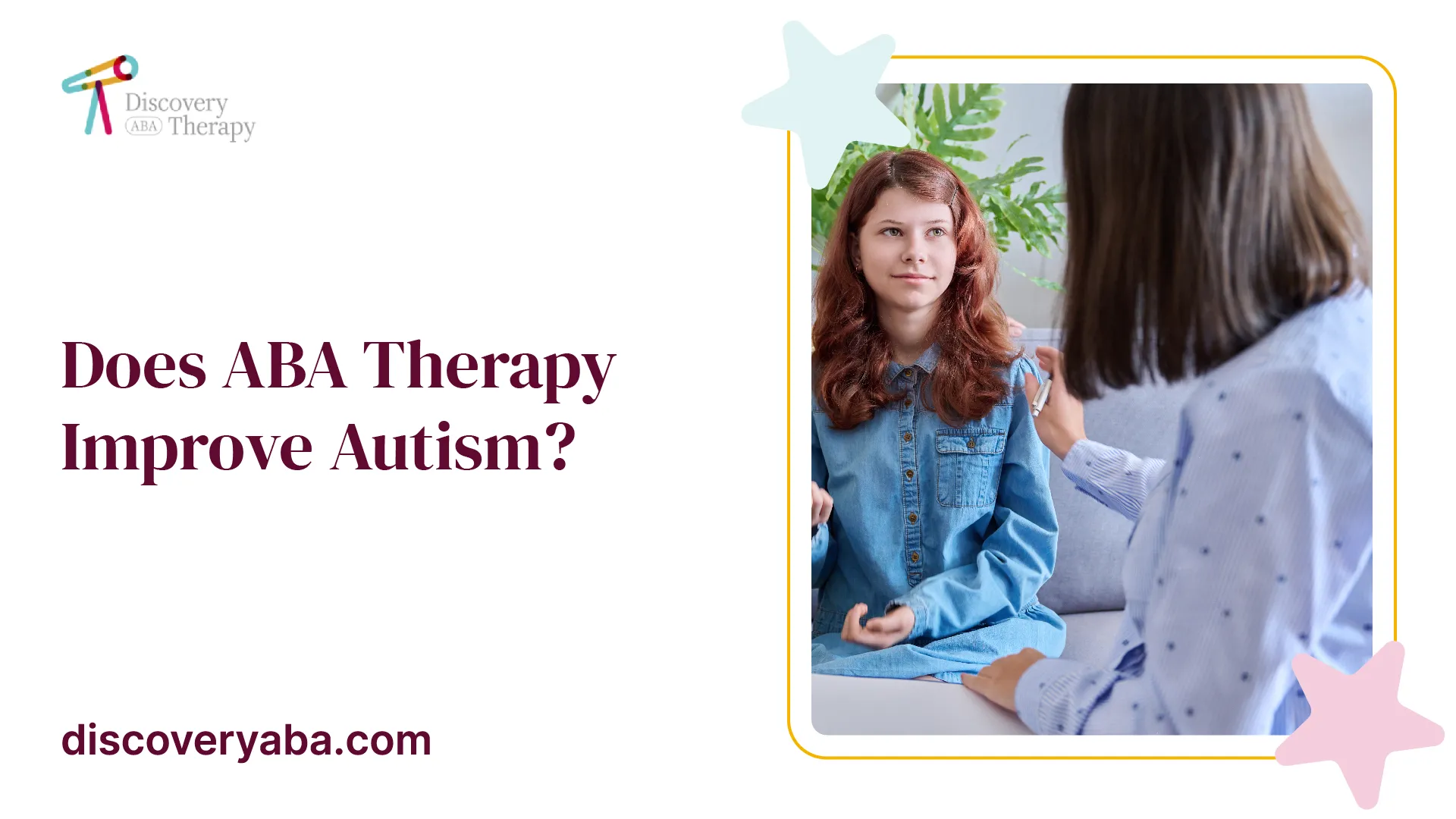Does ABA Therapy Improve Autism?
Yes, when implemented by trained BCBAs and RBTs, ABA therapy is proven by studies to improve symptoms of autism.

Does ABA Therapy Improve Autism?
Applied Behavior Analysis (ABA) therapy is a widely-used treatment for autism spectrum disorder (ASD). It is a type of therapy that focuses on changing behaviors through positive reinforcement. The goal of ABA therapy is to increase desirable behaviors and decrease undesirable behaviors.

While ABA therapy has been shown to be effective in improving certain behaviors in children with ASD, there is still some debate about its overall effectiveness in treating autism. Some parents and professionals swear by ABA therapy, while others are skeptical of its benefits.
The Evidence for ABA Therapy
There have been numerous studies conducted on the effectiveness of ABA therapy for children with ASD. Many of these studies have shown that ABA therapy can lead to significant improvements in communication, social skills, and behavior.
For example, a study published in the Journal of Applied Behavior Analysis found that children who received ABA therapy showed significant improvements in their communication and social skills compared to children who did not receive ABA therapy. Another study published in the Journal of Autism and Developmental Disorders found that ABA therapy was effective in reducing problem behaviors in children with ASD.
The Criticisms of ABA Therapy
Despite the positive results of many studies, there are still some criticisms of ABA therapy. One of the main criticisms is that it focuses too much on changing behaviors and not enough on addressing the underlying causes of autism.
Some critics argue that ABA therapy can be harmful to children with ASD because it can be overly rigid and may not take into account the child's individual needs and preferences.
Others argue that ABA therapy can be stressful for children and may lead to feelings of anxiety and frustration.
The Different Types of ABA Therapy and Their Effectiveness
There are several different types of ABA therapy, each with its own focus and goals. Here are some of the most common types:
- Discrete Trial Training (DTT): This type of ABA therapy breaks down complex skills into smaller parts and teaches them one at a time through repetition and positive reinforcement. DTT is often used to teach basic skills such as language, social interaction, and self-care.
- Naturalistic Teaching: This type of ABA therapy takes place in natural settings such as the child's home or school. The therapist uses play-based activities to teach new skills while also reinforcing existing ones.
- Pivotal Response Training (PRT): This type of ABA therapy focuses on increasing motivation and engagement in learning by targeting "pivotal" areas such as communication, play, and social interaction. PRT is often used to improve language skills and reduce problem behaviors.
While all types of ABA therapy have been shown to be effective in improving certain behaviors in children with ASD, some may be more effective than others depending on the child's individual needs. For example, DTT may be more effective for children who need to learn basic skills, while PRT may be more effective for children who struggle with communication.
It's important to work with a qualified professional to determine which type of ABA therapy is best suited for your child's needs.
The Importance of Early Intervention with ABA Therapy for Children with Autism
Early intervention is crucial when it comes to treating autism. The earlier a child receives therapy, the better their chances are for making significant progress in their development and improving their quality of life.
ABA therapy is one of the most effective treatments for children with ASD, especially when it is started early on in life. Studies have shown that children who start ABA therapy before the age of five tend to make more progress in their communication, social skills, and behavior than children who start therapy later.
Early intervention with ABA therapy can also help prevent problem behaviors from becoming ingrained and more difficult to change as the child grows older. By addressing these behaviors early on, therapists can help children develop healthier habits and coping mechanisms that will serve them well throughout their lives.
It's important to note that every child develops at their own pace, and not all children will respond to ABA therapy in the same way. However, by starting early and working with a qualified professional, parents can give their child the best possible chance for success.
The Bottom Line
While there is still some debate about the effectiveness of ABA therapy in treating autism, it is clear that it can be a valuable tool for improving certain behaviors in children with ASD.
It is important for parents and professionals to carefully consider the individual needs and preferences of each child before deciding whether or not to pursue ABA therapy. Additionally, it is important to work with qualified professionals who have experience in using ABA therapy to treat autism.
In conclusion, ABA therapy can be an effective treatment for autism when used appropriately. However, it is not a one-size-fits-all solution and should be used in conjunction with other therapies and interventions to address the unique needs of each child with ASD.
Does Your Child Have An Autism Diagnosis?
Learn More About How ABA Therapy Can Help
Find More Articles
Contact us
North Carolina, Nevada, Utah, Virginia
New Hampshire, Maine
Arizona, Colorado, Georgia, New Mexico, Oklahoma, Texas
.avif)




































































































